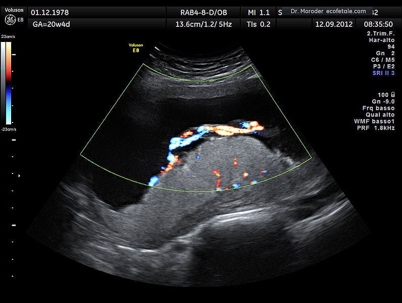Schedule a Consultation
216-621-3000Schedule a Consultation
216-621-3000
Placental infarction, sometimes referred to as placental cerebral infarction, occurs when there is an interruption in blood flow between the placenta and the baby. This condition can lead to the formation of lesions or masses on the placenta, known as infarctions. While minor infarctions are relatively common—occurring in about 25% of normal pregnancies—and typically do not impact the pregnancy, more severe cases can have serious consequences. Significant placental infarctions can result in fetal distress, developmental delays, and even conditions like cerebral palsy. These infarctions are often detected through ultrasound imaging, making regular prenatal care essential for early diagnosis and intervention.
At The Becker Law Firm, we understand the devastating impact that placental infarction and other birth injuries can have on families. Our experienced birth injury attorneys are dedicated to advocating for parents and children who have been affected by medical negligence. We work tirelessly to investigate the circumstances of your case, identify instances of malpractice, and hold responsible parties accountable.
The placenta plays a critical role in pregnancy, acting as the lifeline between the mother and baby. It delivers oxygen and nutrients while removing waste products from the baby’s blood. Any disruption in this process, such as a placental infarction, can jeopardize the baby’s health and development. Understanding the causes, symptoms, and medical responses to placental infarction is vital for ensuring the best possible outcomes for both mother and child.
Placental infarction can result from a variety of underlying conditions, many of which are linked to maternal or fetal health. Some of the most common causes include:
While some risk factors, such as preeclampsia or gestational diabetes, can be managed with proper medical care, others may be harder to predict. This underscores the importance of regular prenatal checkups and open communication with healthcare providers about any potential concerns.
When placental infarction is not properly diagnosed or managed, the consequences can be severe. In some cases, medical negligence may play a role in the failure to prevent or address this condition. Birth injury liability arises when healthcare providers fail to meet the standard of care expected in their profession, resulting in harm to the baby or mother.
Examples of medical malpractice related to placental infarction include:
If medical negligence is suspected, families may have grounds to pursue a birth injury lawsuit. These cases can help hold healthcare providers accountable and provide financial compensation for medical expenses, ongoing care, and other damages.
Navigating the aftermath of a birth injury caused by placental infarction can be overwhelming for families. A birth injury lawyer can provide invaluable support and guidance during this difficult time. Here’s how they can help:
By partnering with an experienced birth injury lawyer, families can focus on their child’s well-being while pursuing justice and financial security.
Doctors and healthcare providers have a responsibility to monitor for placental infarction and other complications during pregnancy. When they fail to meet this standard of care, the consequences can be life-altering. Our team is here to guide you through every step of the legal process, from gathering evidence to negotiating with insurance companies or presenting your case in court. We are committed to helping you secure the resources you need to care for your child and move forward.
If you have questions about whether your medical team did everything possible to protect your baby, contact The Becker Law Firm today.

